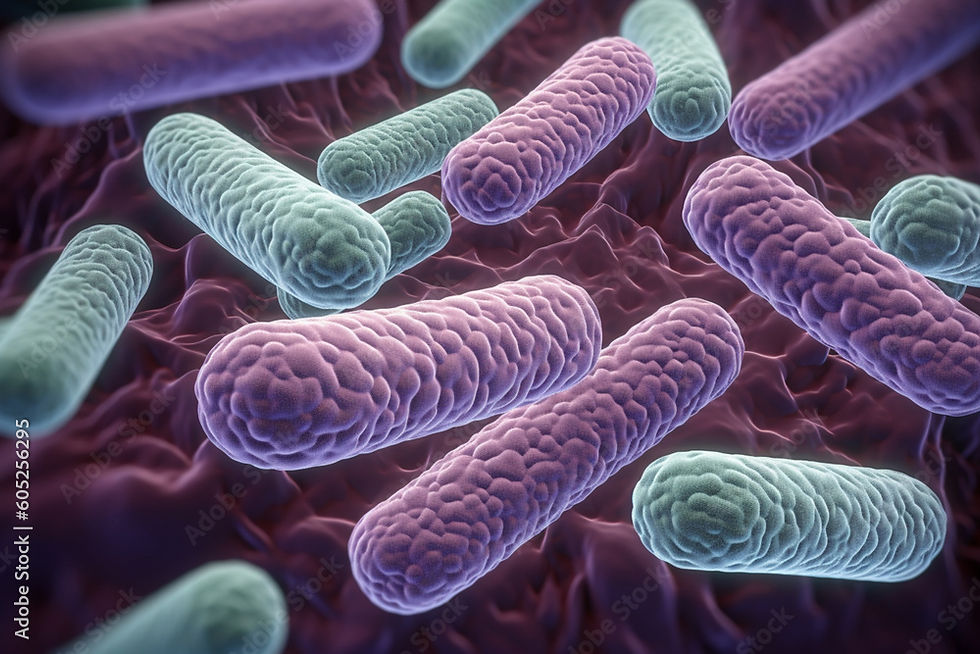Fermented Food Guide
- Alper ÇİMİK
- Feb 8, 2021
- 3 min read
Credited to our guest author Alper ÇİMİK from Anatolia University / Faculty of Pharmacy.
Fermentation Miracle
Natural fermentation, fermented foods, probiotics ... These concepts, which we have heard frequently recently, are actually based on very old recipes that have been used in kitchens for centuries. Fermented foods, which have become more popular with the emergence of healthy nutrition awareness, are in high demand all over the world. The most important reason for this is its endless benefits and therapeutic properties.
What is fermentation?
Fermentation is a method used to preserve raw foods longer.
The decay of substances with the help of bacteria and fungi, in other words, the chemical decay of a substance by microorganisms, usually by giving heat and foaming, is called fermentation. With a more scientific definition; It is a metabolic process that consumes sugar or other organic substances in the absence of oxygen and converts it into energy. As a result of this process, sugar and carbohydrates in foods turn into probiotics, that is, beneficial bacteria.
Fermentation types
There are many different types and construction processes of fermentation used in many different areas. There are varieties such as lactic acid, alcohol, citric acid, yeast and anaerobic fermentation. The most common of these, and the most common ones we find in our kitchens, are lactic acid and yeast fermentation.
Lactic acid fermentation
It is the process of acidifying foods with the effect of lactic acid bacteria and thus preventing the growth of microorganisms that will cause spoilage and even destroying them. It is the main method used to ferment milk and produce yogurt. This method is also used in making many pickles. It is very beneficial for the intestinal flora as it causes beneficial bacteria production.
Yeast fermentation
Yeasts are microorganisms that occur in the advanced stages of fermentation. During the yeast fermentation process, it converts carbohydrates into alcohol and carbon dioxide. It is used in the production of many foodstuffs such as bread, cheese and olives. It enriches foods in terms of content and nutrients and extends their life. It is only necessary to examine the yeasts used in industrial production separately. It is not as healthy and beneficial as natural yeast, as it contains many accelerators and preservatives.
Health from fermentation
In addition to preserving foods without spoiling, fermentation also produces many beneficial bacteria and enriches foods in terms of nutritional value. The health benefits of fermented foods are countless. Here are a few of them:
Probiotics: The key to a healthy body is related to maintaining gut health. The widespread use of ready meals, industrial production and consumption invite many harmful bacteria to our body. Unhealthy eating habits damage the intestinal flora; It kills beneficial bacteria and causes harmful bacteria to multiply, which in turn causes many chronic diseases. The best way to avoid this is to consume foods rich in probiotics. Probiotic foods contain beneficial bacteria for our intestines, maintaining intestinal flora and balance. Diseases that probiotics help prevent or exhibit healing properties include:
1) Digestive disorders such as diarrhoea caused by infections, diarrhoea caused by antibiotics, irritable bowel syndrome and inflammatory bowel disease
2) Allergic disorders such as atopic dermatitis (eczema) and allergic rhinitis (hay fever)
3) Dental caries, periodontal diseases and other oral health problems
4) Colic discomfort in infants
5) Liver diseases
Lactic Acids/Essential amino acids:
Fermentation is a natural method that increases the nutritional value of foods with the synthesis of essential amino acids and vitamins. Fermented products show many positive developments at the end of the transformation process they undergo: They are enriched in lactic acid and the amount of essential amino acids increases. The health benefits of these acids and amino acids can be listed as follows:
1) It lowers malignant cholesterol. (LDL)
2) It balances the blood pressure.
3) It supports intestinal and digestive system functions.
4) It helps prevent coronary heart diseases.
Anticancer effect:
Cancer is caused by the activation or mutation of abnormal genes that control cell growth and division. Scientists point out that probiotics and fermented foods can reduce exposure to chemical carcinogens. In this sense, it is recommended to be used both as anti-cancer and therapeutic. Studies have revealed that probiotics affect all cell types involved in metastasis. It has also been suggested that lactobacilli-based therapy be used specifically to overcome failures in the treatment of cancer metastases. (Tehran University of Medical Sciences)
Other studies have proven that probiotic sauerkraut, when prepared through the natural fermentation process, produces many cancer-fighting active ingredients, including indoles and sulforaphane. Lactic acid bacteria and probiotic foods that enable these bacteria to grow and neutralize genotoxic carcinogens and protect DNA from damage. (American Journal of Clinical Nutrition)
Fermented Foods in Turkey
1)Sourdough Siyez Bread
2)Sourdough Corn and Chickpea Bread - Gluten Free
3) Lacto-fermented Pickles
4) Fermented Siyez Tarhana
5) Şirden Yeast Cheeses
6)Fermented Olives
7)Yeast Buffalo Yogurt
8)Fermented Buffalo Sausage and Roast
9)Fermented Vinegar
In my other article, I am thinking of giving you detailed information about these foods.
Thank you ...
REFERENCES
* National Center for Complementary and Integrative Health https://nccih.nih.gov/health/probiotics/introduction.htm
* Tehran University of Medical Sciences https://www.ncbi.nlm.nih.gov/pmc/articles/PMC5581548/
* American Journal of Clinical Nutrition https://academic.oup.com/ajcn/article/73/2/451s/4737577








































Comments